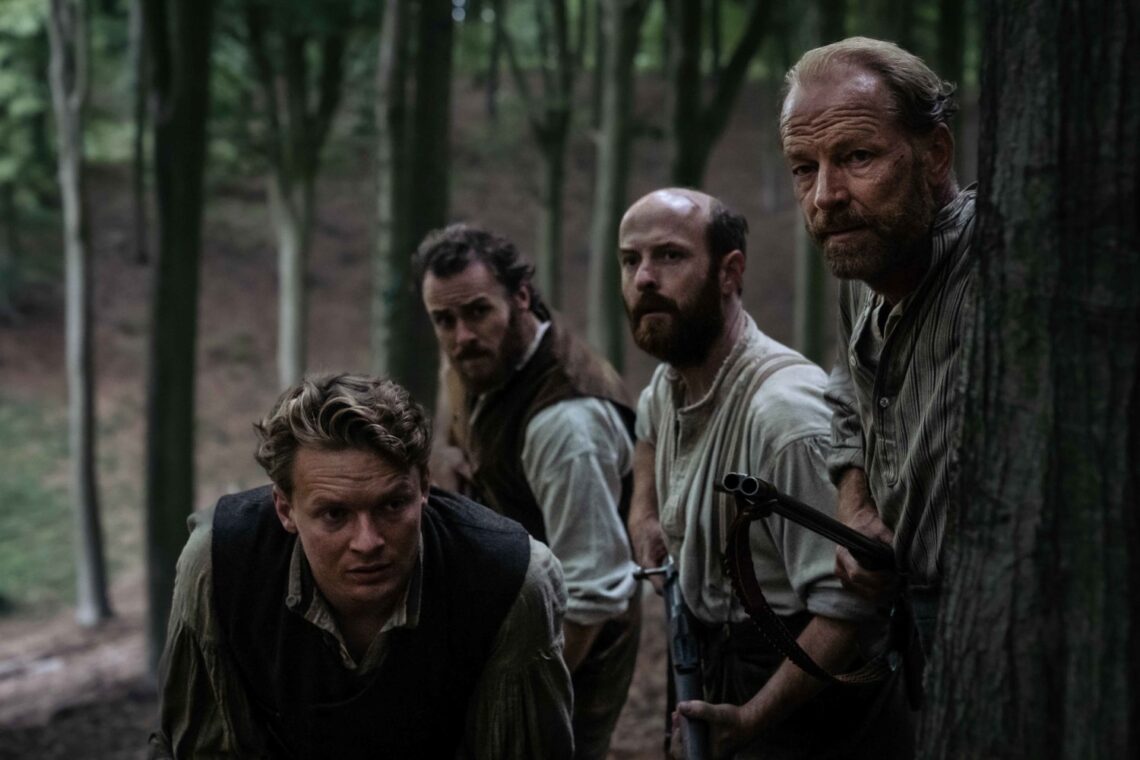A gripping tale of war and humanity: ‘The Last Front’
The Last Front is a film that takes us back to the early days of World War I, offering a gripping narrative set against the backdrop of the Belgian countryside. Directed by Julien Hayet-Kerknawi, this debut feature is a compelling drama that delves into the complexities of war, morality, and human resilience.
A different kind of war story
Set in August 1914, The Last Front begins with German troops marching through Flanders, anticipating an easy conquest of France. The eerie silence of a town they pass through is shattered by a single gunshot, fired by a panicked local adolescent. This act of defiance triggers a brutal retaliation from Lt. Laurentz, played by Joe Anderson, who orders the execution of civilians, including women and children. This scene sets the tone for the film, highlighting the harsh realities of war and the moral dilemmas faced by those involved.
Watch the trailer for The Last Front
Characters caught in the crossfire
The film’s narrative shifts to a neighboring community, where the forbidden romance between Adrien (James Downie) and Louise (Sasha Luss) is the main concern. Their fathers, Leonard Lambert (Iain Glen) and Dr. Janssen (Koen De Bouw), oppose the relationship due to class differences. However, the arrival of the German forces soon overshadows these personal conflicts. Leonard, a widowed farmer, finds himself thrust into a leadership role as the community grapples with the invaders’ demands and brutality.
A study in contrasts
The Last Front is a study in contrasts, from the angelically blond doomed lovers to the bloodthirsty villain Laurentz. The film avoids falling into sentimental clichés, thanks to the tight screenplay by Hayet-Kerknawi and Kate Wood. The characters are well-drawn, and the actors deliver strong performances, particularly Anderson, who creates a vivid and detestable nemesis. His portrayal of Laurentz recalls the “Man You Love to Hate” roles played by Erich von Stroheim in WWI melodramas.
Craftsmanship and cinematography
The film’s craftsmanship is evident in its design and technical aspects. Xavier Van D’huynslager’s widescreen cinematography captures the nocturnal imagery beautifully, adding to the film’s atmospheric tension. The orchestral score by Frederik Van de Moortel, while familiar, effectively conveys the urgency and emotional weight of the story.
A reflection on war and humanity
The Last Front is not just a war film; it’s a reflection on the human condition during times of conflict. The film explores themes of morality, leadership, and resilience, offering a nuanced portrayal of the characters’ struggles. Leonard’s transformation from a reluctant farmer to a resistance leader is particularly compelling, highlighting the impact of war on ordinary people.
Final thoughts
While The Last Front may not be the most memorable period war film in recent years, it stands out for its assured craftsmanship and engrossing narrative. The film’s straightforward, sometimes brutal progress will satisfy audiences looking for more than just combat spectacle. It’s a poignant reminder of the human cost of war and the moral complexities that come with it.
For those interested in exploring more about the film, you can watch the trailer and find additional details on the The Last Front information page.
This article aims to provide a comprehensive and engaging overview of The Last Front, offering insights and reflections for cinema enthusiasts. By delving into the film’s narrative, characters, and craftsmanship, it highlights the elements that make this war drama a compelling watch.

 Italian
Italian







